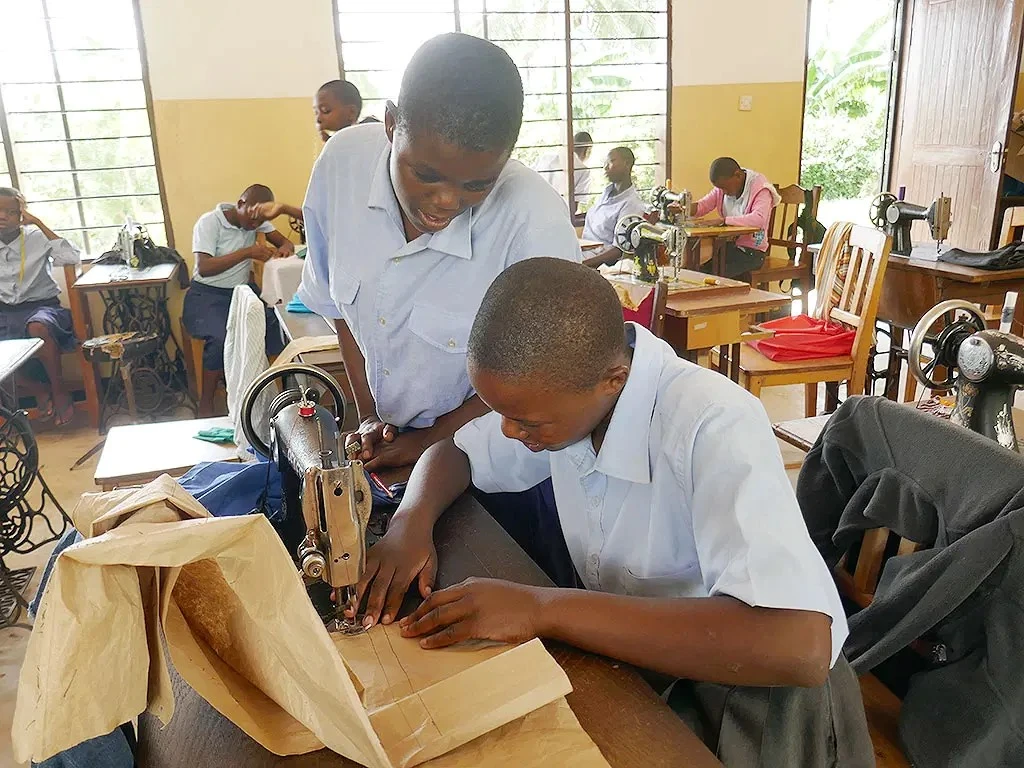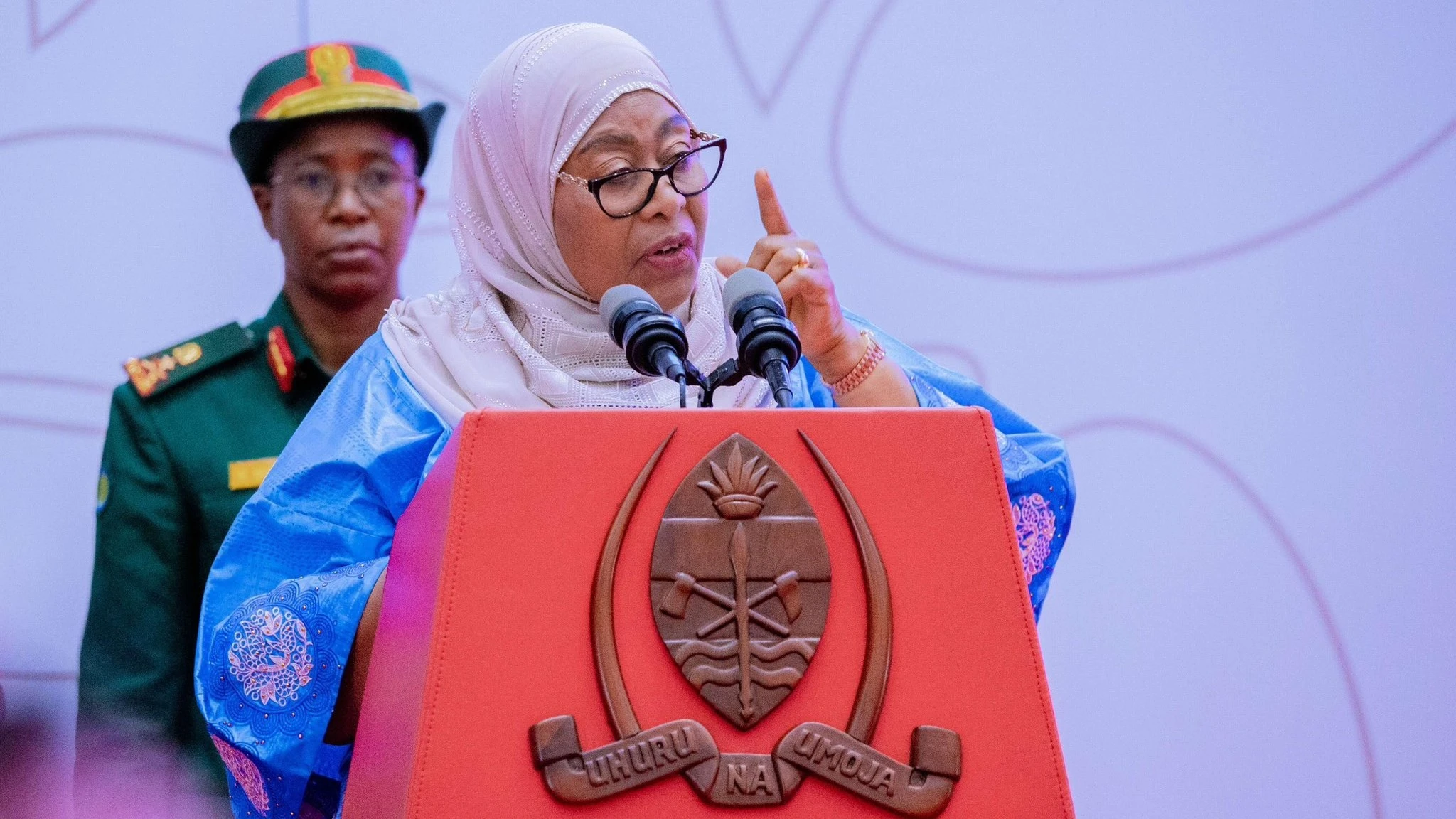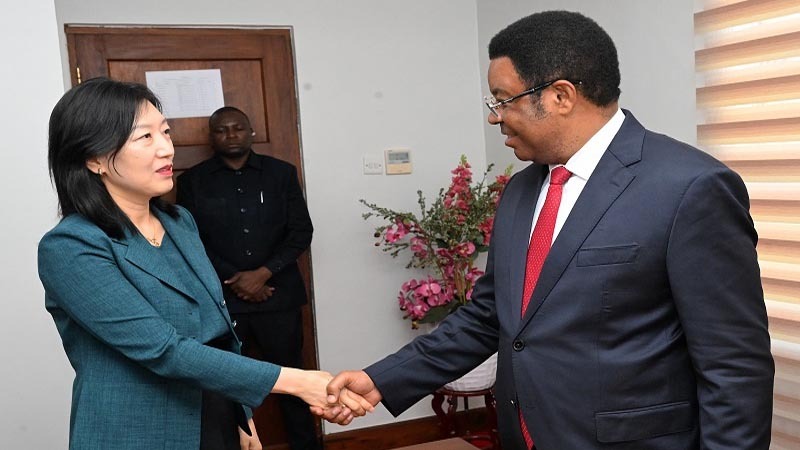Revolutionizing education: Tanzania embraces vocational training to propel youth into the future

In today’s fast-paced world, where technology and job markets are ever-changing, practical skills are increasingly vital. It's perplexing that vocational training is often undervalued despite its crucial role—engineers rely on skilled workers to bring their designs to fruition. It was time we acknowledged and invested in its importance!
Recognizing this, Tanzania has decided to revamp its education curriculum to align with these needs, a move widely praised and supported by Kahama Member of Parliament, Jumanne Kishimba.
According to Kishimba, these changes are vital to ensure that young people acquire the practical skills required in the job market, enabling them to become self-reliant and contribute more significantly to national development. This initiative underscores the importance of strengthening educational systems with a focus on practical training and modern skills rather than clinging to outdated theories.
The concept of vocational education has gained significant traction in Tanzania's education sector, particularly following President Samia Suluhu Hassan's directive to revolutionize the education system. These reforms aim to enhance the curriculum for primary and secondary education, with "vocational education" emerging as a central theme in discussions among education stakeholders.
The goal is to improve students' practical skills, providing them with the knowledge and expertise needed in today's job market. However, there is a prevailing misconception among parents and guardians that vocational education is merely a path to becoming tradespeople, thereby diminishing the perceived prestige of such education.
On October 10, 2023, the Minister of Education, Science, and Technology, Professor Adolf Mkenda, clarified the objectives of vocational education. He stated that this form of education aims to equip students with skills that enable them to become self-employed or gain employment.
"In this vocational education program, we will include sports, agriculture, and technical skills, ensuring that upon completion, students receive a certificate in their field of study," Professor Mkenda explained, urging those capable of providing such education to collaborate with the government to improve teaching conditions.
Despite these clarifications, there remains confusion about whether vocational education differs from technical education, which has been offered for some time through Vocational Education Training Authority (Veta) colleges.
The vocational curriculum includes disciplines such as Electrical Installation, Mechanical Engineering, Construction Engineering, Automotive Engineering, Hospitality and Tourism, Business, Creative Arts, Information and Communication Technology (ICT), and Sports. These fields are similar to those offered in technical colleges, raising questions about the actual differences between these two educational pathways.
The Revolutionary Government of Zanzibar has initiated the construction of vocational training centers in Unguja and Pemba to assist students lacking the qualifications to pursue higher education. The Second Vice President of Zanzibar, Hemed Suleiman Abdulla, noted that the government is in the process of acquiring learning and teaching materials, as well as launching a project to enhance the quality of compulsory education.
"I want to see students we equip with skills attaining international standards, enabling them to work anywhere in the world," stated Professor Carolyne Nombo, Secretary General of the Ministry of Education, Science, and Technology.
While the government promotes investment in vocational education, a significant challenge lies in the negative perception held by many parents, who view this education as preparing their children to be mere tradespeople rather than office professionals.
Martin Lutahakana, a Tanzanian residing in the UK, observed that "In developed countries, those with vocational skills are economically far ahead, as they are in high demand for middle- and upper-income jobs."
The job market for vocational education graduates in developed countries is vast, and these graduates are highly sought after for practical work. However, Tanzania faces significant challenges in investing in resources and infrastructure for vocational education. Many young people graduating from technical colleges like VETA lack adequate skills and often receive practical training from artisans who may not have formal education themselves.
Paschal Malimi, a well-known computer technician in Kariakoo, exemplifies how vocational education can provide practical skills. "I never completed a degree in computer engineering; instead, I learned from my brother, who started a computer school in Kamata, Kariakoo, in 1998," said Malimi, highlighting the importance of integrating formal education with practical training.
Vocational education has proven to be crucial in reshaping Tanzania's education system. Taking cues from developed countries, vocationally trained individuals are given significant importance in the job market. This suggests that vocational education can substantially contribute to the country's economic development if nurtured and supported effectively.
Fredy Mwambafula, a master's degree student in electrical engineering at the University of Sheffield in the UK, agrees. He notes that significant investments are made in vocational colleges to ensure graduates have international-standard skills.
He says, "In European colleges, many exams are practical, which endows graduates with a strong ability to compete in the global job market." Mwambafula points out that he often sees students from Asia and Europe struggling with theoretical subjects but excelling in practical ones, where considerable investment is made in research without regard to the high costs borne by students.
In China, substantial investment in vocational education has yielded excellent results. Siima Katanga, a student at Guangzhou University in China, states, "China's investment in vocational education aims to ensure that graduates have the technical skills required in the job market. This is crucial in fostering economic growth and increasing employment." This focus has positioned China as a leader in industry and technology, with vocational college graduates playing a key role in this advancement.
Florence Mugarula, who lived in Birmingham, emphasizes that "Europe has successfully invested more in middle colleges, where studying for a bachelor's and master's degree is often not a priority. Instead, young people prefer to learn trades and demonstrate specific skills." This contrasts sharply with Tanzania, where higher education is still given more emphasis than vocational education.
Despite numerous challenges, such as the availability of modern equipment and the negative perception among parents, there is great hope that vocational education can bring about the desired changes. Paschal Malimi, a renowned computer technician in Kariakoo, is a living example of how vocational education can yield positive results. He learned computer skills practically from his brother and has since become self-reliant and employed many young people. "I never completed a degree in computer engineering, but I have managed to build myself up through practical training," said Malimi.
The government and stakeholders must work closely together to ensure vocational education receives the necessary support. This includes providing modern equipment, enhancing teacher training, and improving teaching infrastructure. Additionally, society needs to change its perception of vocational education and recognize its value in building a robust economy and fostering social development.
In efforts to improve vocational education, the government has outlined plans to construct new vocational training centers and strengthen existing programs. This investment is crucial to ensuring that students acquire the skills needed in the modern job market. The government also encourages collaboration with the private sector to enhance the quality of training provided.
Drawing lessons from developed countries and local efforts, vocational education can be a significant catalyst for economic and social development in Tanzania. It is vital for all stakeholders—government, parents, teachers, and students—to collaborate to ensure the success of this initiative.
If implemented effectively, vocational education can create numerous job opportunities, reduce poverty, and improve the standard of living for many citizens. It is our collective responsibility to build a solid foundation for vocational education to deliver better outcomes for future generations.
Top Headlines
© 2025 IPPMEDIA.COM. ALL RIGHTS RESERVED

























